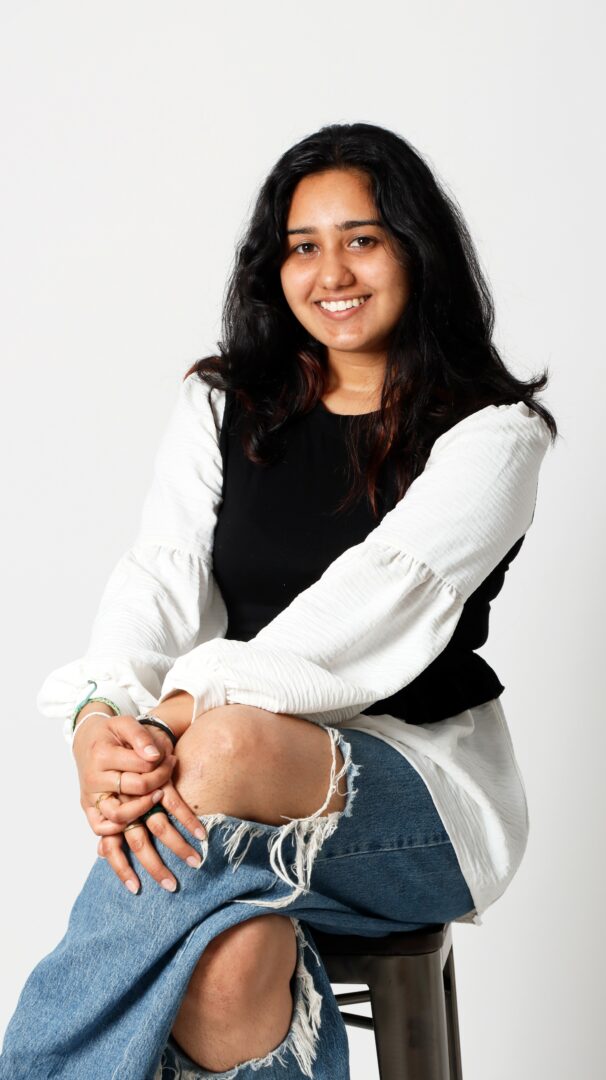We’re excited to introduce you to the always interesting and insightful Rupal Panwar. We hope you’ll enjoy our conversation with Rupal below.
Rupal, thank you so much for joining us. You are such a positive person and it’s something we really admire and so we wanted to start by asking you where you think your optimism comes from?
My optimism is something I’ve built over time, it wasn’t something I was born with. I don’t think anyone is. It comes from experiences, especially the real and raw ones. The good moments have shaped me, but it’s the tougher times that really taught me the most. Just making it through those moments, again and again, showed me that pain doesn’t last forever. Even in the darkest situations, I’ve found that there’s always something quietly waiting to teach you, to help you grow—even if you don’t see it right away.
For me, optimism is a mindset that got instilled slowly, almost subconsciously, every time I found light while surrounded by darkness. The more I came out of hard times, the more I started to believe in that light. And over time, I began to trust the process. There’s a certain strength that comes from looking back and realizing how far you’ve come, how every challenge, every setback, shaped who you are today. That kind of reflection really helps me keep the optimism alive.
I’ve also learned that optimism isn’t easy, especially when hope feels far away. But I’ve found that if you believe even a little in the possibility of things getting better, it becomes easier to have faith in that hope, and that faith makes it easier to stay optimistic.
I’ve heard the phrase “everything happens for a reason” so many times. And honestly, there were moments I didn’t believe it at all. But over time, I’ve come to trust that even if the reason isn’t clear right now, every experience, especially the hard ones, pushes you to grow in some way.
I’m not sure if optimism is a trait or a skill, but I know it’s something that’s helped me stay afloat. Life doesn’t have to be perfect to be meaningful, and that thought gives me comfort. I’ve trained myself to zoom out, to see the bigger picture. I’ve learned to pause, to breathe, and ask: “What is this trying to teach me?” That mindset has honestly saved me.
I don’t choose optimism because everything is easy, but because I’ve seen how powerful it is when you don’t let your circumstances define your spirit. To me, optimism is an act of quiet courage. It’s the decision to keep believing in something better, even when you can’t see it yet. And that belief and steady silent faith, is what helps me stay optimistic.
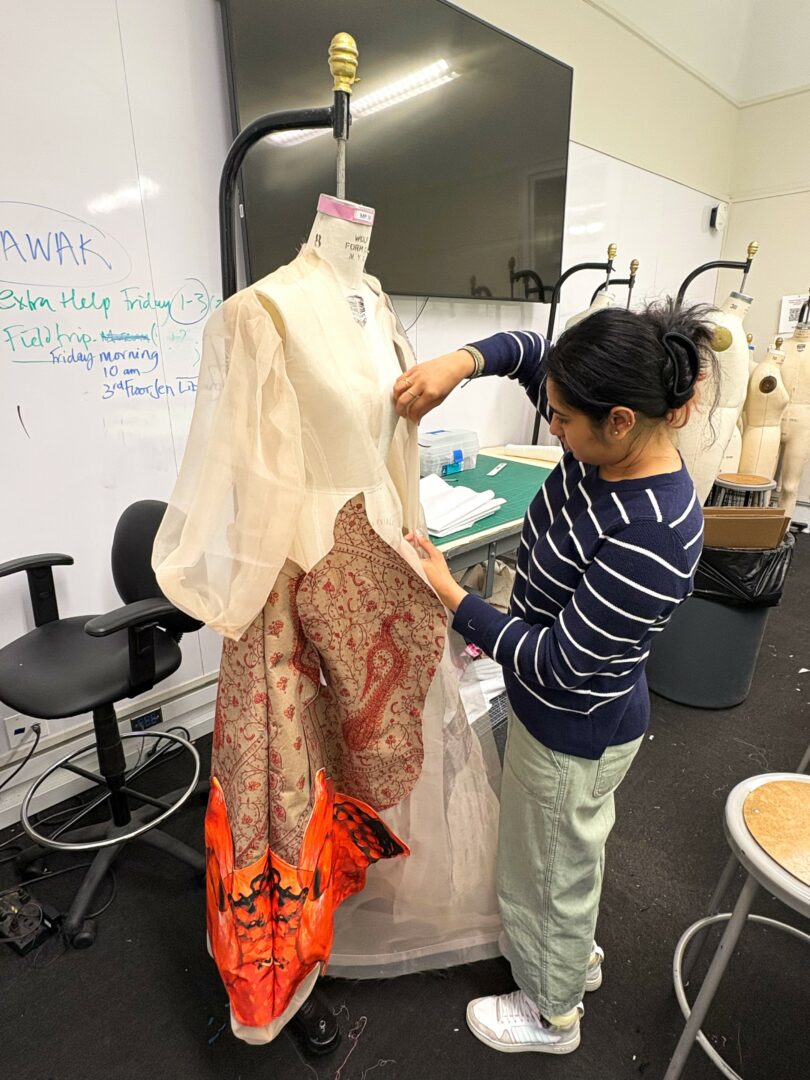
Thanks, so before we move on maybe you can share a bit more about yourself?
I’m a fashion designer with a focus on ready-to-wear womenswear, and for me, fashion is deeply personal. I get genuinely excited by the process of transforming a 2D pattern into a 3D garment, it feels almost magical to watch something flat come to life, to mold fabric into a story that someone can wear.
My introduction to fashion started early. My mother, who’s both a homemaker and a fashion designer, was my first source of inspiration. Growing up, I watched her create garments with so much care and intention. It made me realize how powerful clothing can be, not just as something to wear, but as something that gives you confidence, helps you express who you are, and sometimes even helps you find who you are. That idea stuck with me: that fashion could be more than a trend but it could be a tool for identity.
I recently completed my MFA in Fashion at the Savannah College of Art and Design. During my final year, I poured my heart into my thesis, which became a turning point for me not just creatively, but personally. I began researching the experience of immigrants, especially the internal battles we face around culture shock, identity, and belonging. Being from India and now living in a different part of the world, I’ve felt those shifts deeply myself. That feeling of being in-between cultures, homes, and identities is what I chose to explore through my work.
My thesis was rooted in Kashmiri culture, a region that holds both breathtaking beauty and a complicated, often painful political reality. I wanted to use fashion as a bridge to celebrate the rich heritage of Kashmir while also acknowledging the ongoing struggles and displacement experienced by its people. I used Indian textiles from Kashmir and blended them with contemporary western silhouettes, creating pieces that carry the warmth of tradition but feel fresh and relevant in today’s global fashion landscape. My goal was to make garments that allow immigrants to represent their culture without feeling like they have to choose between where they come from and where they are now.
What’s most exciting to me about my work is the opportunity to create a sense of belonging for people like me, for anyone who’s ever felt like they’re floating between two worlds and wanted to represent their ethnicity. Through fashion, I hope to help people feel more seen, more understood, and more at home in their own skin.
I had the chance to showcase my work at the Cedar House Gallery as part of my graduate thesis exhibition, and the response was incredibly meaningful. Having people engage with my pieces and hear the stories behind them was an experience I’ll never forget. It gave me a sense of clarity and confidence about what I want to continue building.
Going forward, I’m working on turning my thesis into a full-fledged brand, one that speaks to modern women who want to express their heritage without compromising on style or identity. A brand that blends strength and softness, tradition and modernity, culture and creativity. I also want to use my platform to continue raising awareness about the chaos and complexity in Kashmir because fashion can be beautiful, but it can also be powerful and deeply purposeful.
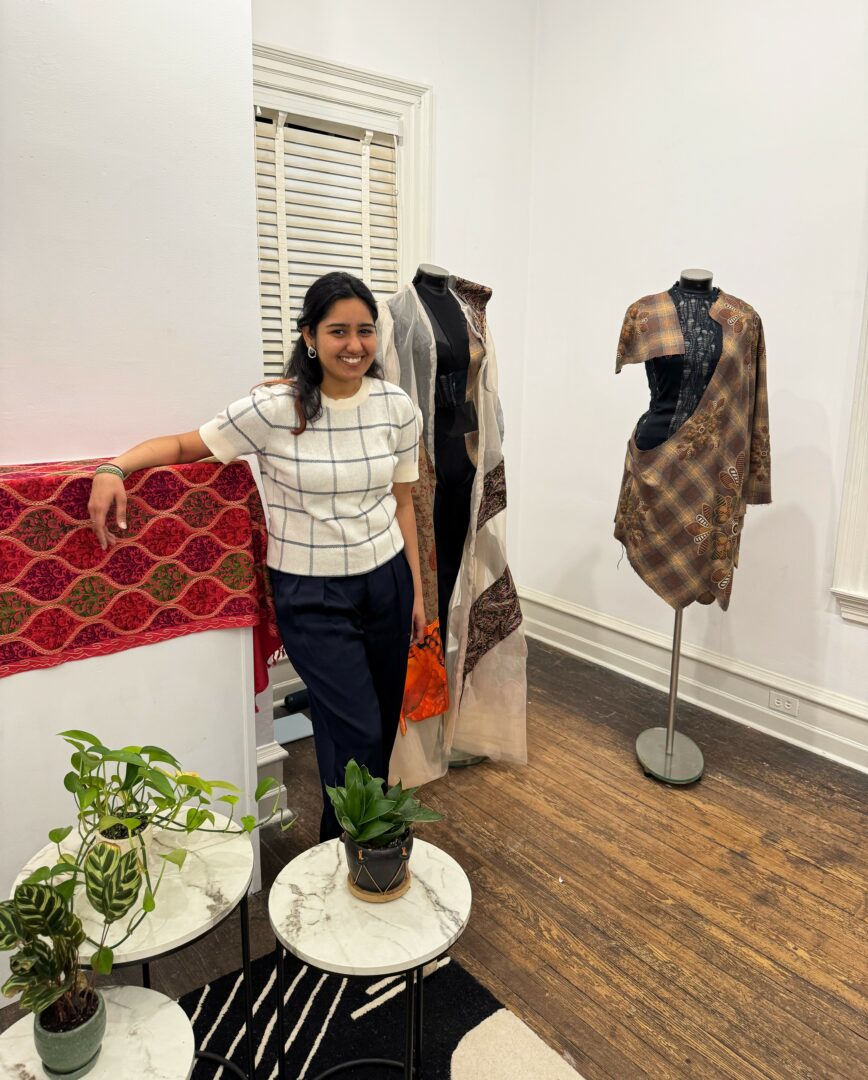
Looking back, what do you think were the three qualities, skills, or areas of knowledge that were most impactful in your journey? What advice do you have for folks who are early in their journey in terms of how they can best develop or improve on these?
There are so many qualities we learn and unlearn during our journey. To pick a few that, looking back I feel really stand out would be ambition, adaptability and empathy.
Ambition- I’ve always believed in the quote, “Aim for the stars, and you might land on the moon.” It’s something I carry with me, not just as a comforting thought, but as a way of living. For me, ambition is about setting my sights higher than what feels comfortable or guaranteed. It’s not about chasing perfection, but about allowing myself to dream beyond the limits I once believed in. Every time I’ve aimed higher, I’ve ended up achieving things far greater than I originally imagined for myself. That mindset has opened doors I didn’t even know existed, and it’s helped me grow in ways I couldn’t have planned. Ambition, in that sense, isn’t just about success—it’s about discovering your own potential by daring to go further.
Adaptability- I believe being open to evolving, both personally and creatively, has shaped my perspective deeply. To be able to adapt has helped me grow through change, uncertainty, and unfamiliar environments. There will always be uncertainty in life, but to be open to growing and always looking at it from a learning point of view gave me the resilience to keep going. To those at the beginning of their journey: embrace the unknown. Stay open to feedback, be willing to shift, and see every moment as an opportunity to learn something new.
Empathy- Empathy has been at the core of my creative voice. It’s what allows me to connect with people through my work, to design not just for aesthetics but for meaning. Cultivating empathy helps you create with honesty and emotional depth. For anyone just starting out, remember that your story matters and so does how you honor the stories of others through your art. It’s the people and connections that add value to my life and through empathy I’m able to get the most out of those experiences.
For folks in the early stage of their journey I would firstly like to remind that everyone’s path is unique and to not expect it to be perfect. Take your time to figure out ‘why’ you want to do what you’re doing. Skills can be learned, tools can be mastered, but your ‘why’ is what will carry you through the doubts and the deadlines. Be open to evolving, and allow your voice to take shape with experience. It doesn’t have to be loud or perfect, it just needs to be yours.
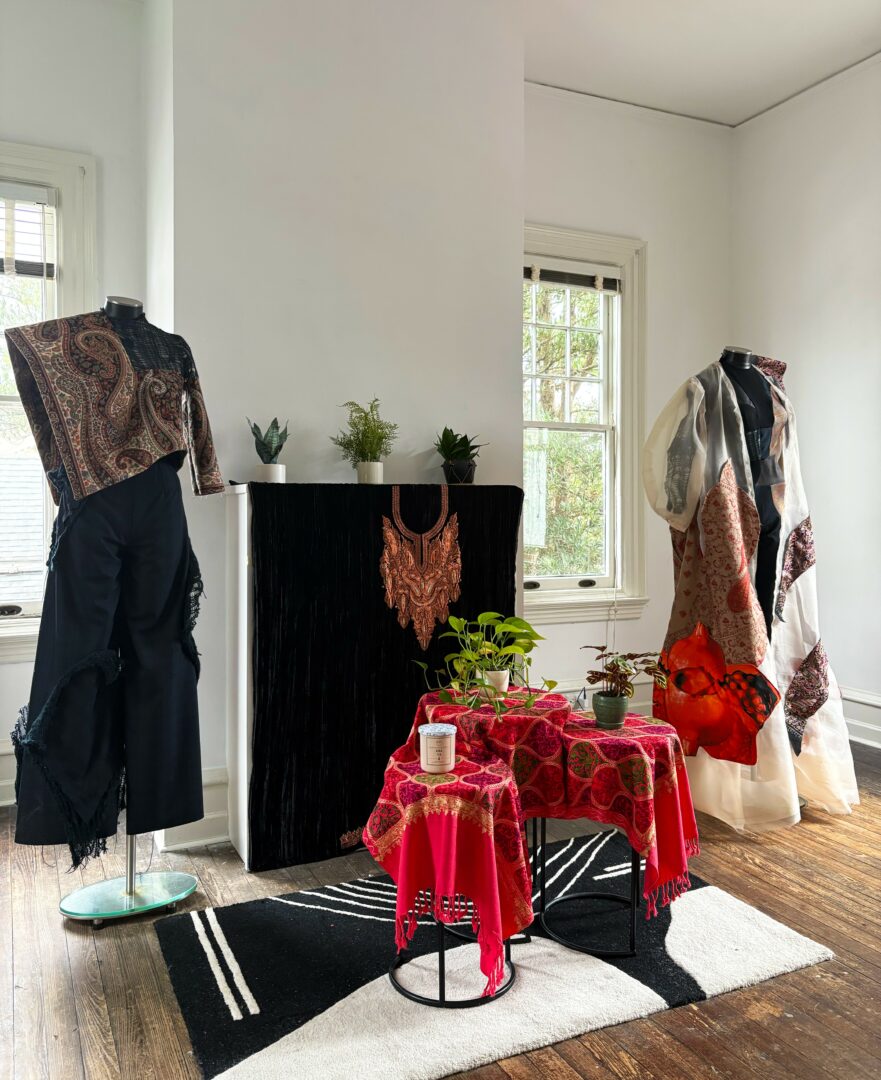
Who is your ideal client or what sort of characteristics would make someone an ideal client for you?
While working on my thesis during my MFA in Fashion, I had to delve deeply into the question of who I want to design for?, Who is my ideal client? I realized my ideal client, in many ways is a version of myself. My ideal client is someone who sees fashion as more than just clothing but as a form of identity and quiet power. She’s thoughtful, expressive, and deeply connected to her roots, but she also navigates the modern world with ease and confidence. Someone who is ethically conscious and chooses to express herself through what she wears, not just for style, but to tell a story. I want to design for women who are global citizens, who don’t want to be boxed into outdated ideas of tradition, yet want their garments to carry pieces of home.
One person who embodies this balance so beautifully is Priyanka Chopra. She represents exactly the kind of woman I want to design for: fearless, rooted, ambitious, and effortlessly straddling multiple cultures. She uses fashion as a tool for identity and impact, whether she’s on an international red carpet or speaking about social change. She embraces her heritage while breaking boundaries. That’s the kind of spirit I want my work to resonate with. My ideal client values craftsmanship, thoughtful design, and garments that speak without shouting. She values garments that tell stories with pieces that blend tradition with a contemporary edge. She dresses with intention and pride—choosing pieces that reflect who she is, where she comes from, and where she’s headed.
Contact Info:
- Website: https://www.behance.net/rupal26panfe93
- Instagram: https://www.instagram.com/rupal.pan/
- Linkedin: https://www.linkedin.com/in/rupal-panwar-b52597134/
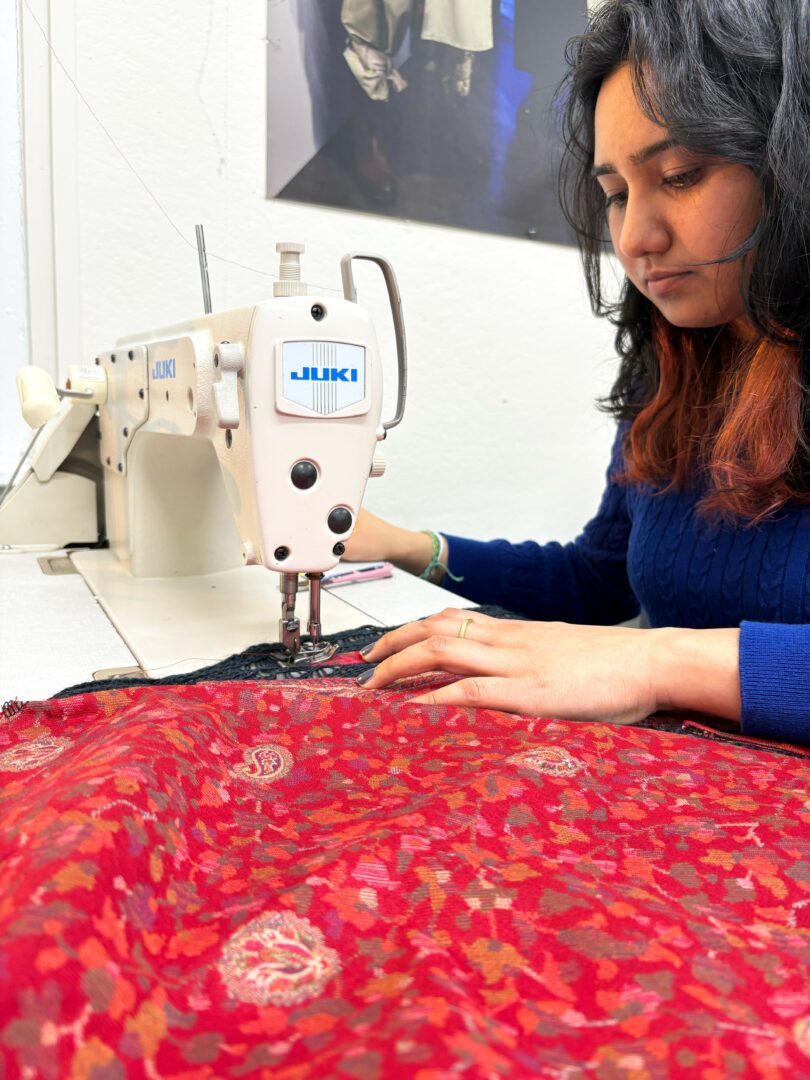
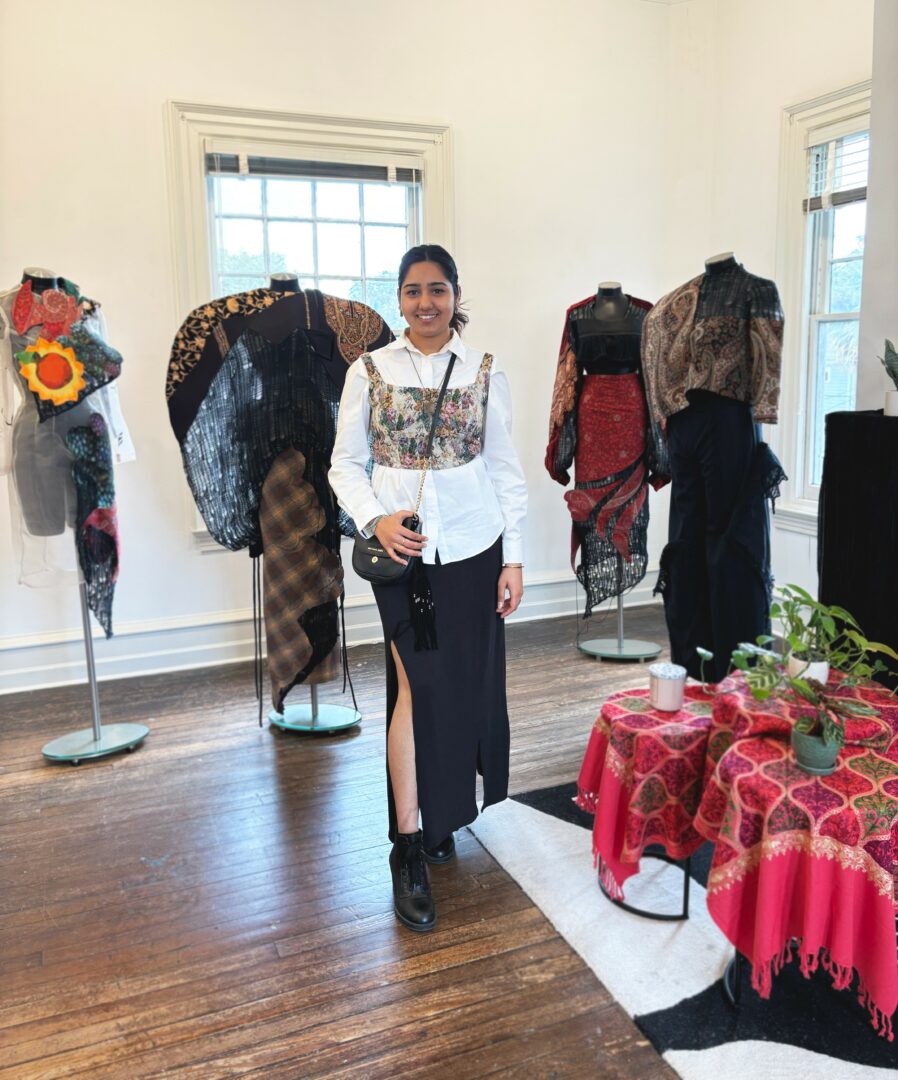
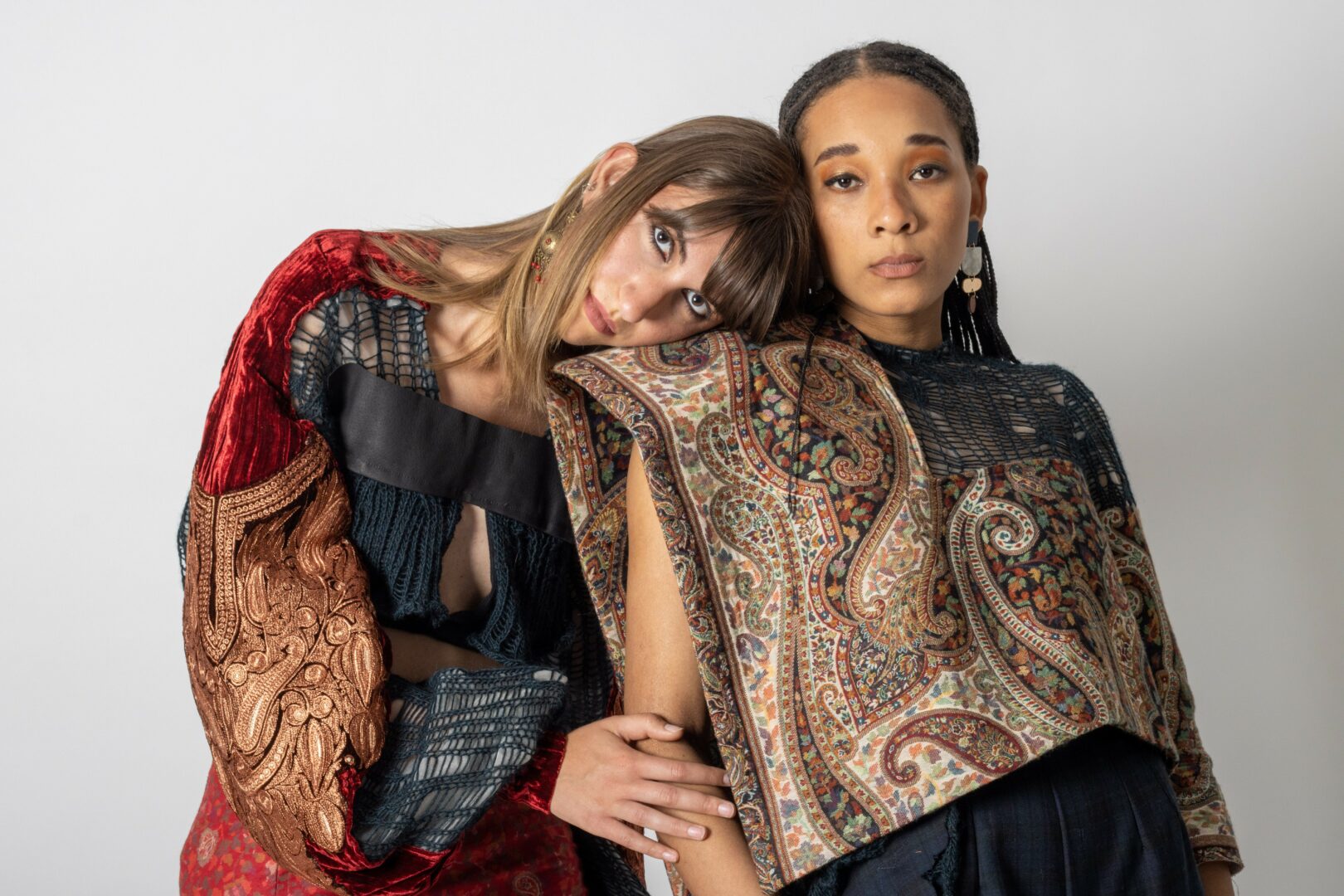
so if you or someone you know deserves recognition please let us know here.

